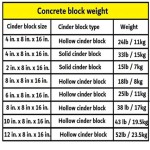Laying Pavers on a Concrete Patio: A Comprehensive Guide
Transforming your concrete patio into an elegant and functional outdoor space using pavers is a project that can be both rewarding and challenging. To achieve successful results, meticulous planning and attention to detail are paramount. This guide will delve into the essential aspects of laying pavers on a concrete patio, providing you with the knowledge and confidence to embark on this project.
Preparing the Concrete Patio
A solid foundation is crucial for the longevity of your paver patio. Begin by thoroughly cleaning the concrete surface to remove any dirt, debris, or sealant. Repair any cracks or imperfections to ensure a level and stable surface. Ensure that the concrete has cured for at least 28 days before proceeding.
Choosing the Right Pavers
The choice of pavers will significantly impact the aesthetics and durability of your patio. Consider factors such as color, texture, size, and thickness. Pavers should be strong enough to withstand heavy foot traffic and weather conditions. Porcelain, clay, and concrete pavers are popular options that offer various styles and properties.
Laying Out the Pavers
Plan the layout of the pavers carefully to minimize cutting and waste. Start by determining a focal point and working outward. Use string or chalk lines to guide the placement of the first row of pavers, ensuring they are level and aligned. For intricate patterns, create a template or dry-lay the pavers beforehand.
Setting the Pavers in Mortar
For maximum stability, set the pavers in a thin layer of mortar. Mix the mortar according to the manufacturer's instructions and spread it evenly over a small section at a time. Embed the pavers firmly into the mortar, ensuring they are level and evenly spaced. Avoid overfilling the joints.
Filling the Joints
Once the mortar has set, fill the joints between the pavers with polymeric sand. This flexible material helps prevent weeds and insects while allowing for slight movement of the pavers. Brush the sand into the joints, compact it, and remove any excess.
Sealing the Patio
To protect your paver patio from staining, fading, and moisture damage, apply a paver sealer. Choose a sealer specifically designed for the type of pavers you have. Follow the manufacturer's instructions for application and allow adequate dry time.
Final Touches
Complete your paver patio by adding borders, edging, or decorative elements to enhance its appearance and functionality. Consider incorporating accent pavers or lighting to create a cohesive and inviting outdoor space.
By following these steps and paying meticulous attention to detail, you can successfully lay pavers on your concrete patio, creating a beautiful and durable outdoor living area that will enhance the enjoyment of your property.

How To Install Patio Pavers Over An Existing Concrete Slab

How To Cover A Concrete Patio With Pavers Diy Family Handyman

How To Install Patio Pavers Over An Existing Concrete Slab

Why Installing Pavers Over Concrete Is A Bad Idea Pavertime

Installing Pavers On Concrete Unilock

How To Cover A Concrete Patio With Pavers Diy Family Handyman

Pros And Cons Of Putting Pavers Over Concrete

How To Install Concrete Pavers Rcp Block Brick

How To Install Patio Pavers Over An Existing Concrete Slab

Paver Installation Over Concrete Overlay Using Pavers








